Table of Contents
New iPhone 11 leaks point to a radically different square-shaped rear camera inside of a familiar-looking design, and an expected release date falling in September 2019.
Aside from the camera bump, Apple isn’t expected to offer a massive design update with the new iPhone 11. Instead, this iOS 13-toting phone is shaping up to be another incremental update, just like last year’s iPhone XS was over the iPhone X.
What will change? The most credible new iPhone 11 rumors point to a bulky three-camera array on the back of the phone, which likely means better photo and video quality.
We’ve rounded the key iPhone 11 leaks in a little video just for you, to give a quick overview of what you may be able to expect later this year.
The third rear camera could also boost Apple’s augmented reality vision, as CEO Tim Cook has consistently talked up the power of AR on the iPhone and iPad. A depth sensing time-of-flight camera could do just that on the new iPhone series.
The iPhone 11 may also get an important increase in battery life and the reverse wireless charging feature touted by Samsung and Huawei. Only Apple’s version may be able to wirelessly charge a friend’s iPhone or your Apple Watch.
Update: The iPhone 11 leaks continue to flow, and we’ve potentially been given a clear view of what all three new iPhones will look like.
The usual suspects are here, too, when it comes to new iPhone 11 leaks: a specs update to make the phone faster than the already-fast previous versions, and new colors to catch the eye of consumers hesitant to upgrade to the newest iPhone.
That’s good news because Apple isn’t selling as many iPhones as previously forecast, so its next flagship has to wow everyone or comes down in price to stay competitive.
With three iPhones launched in 2018 – the standard iPhone XS, larger iPhone XS Max and budget iPhone XR – we expect Apple to repeat the trifecta this year with the new iPhone 11 possibly launching alongside the iPhone 11 Max and the iPhone 11R (names TBC).
Indeed, it looks very likely as 11 unannounced iPhone model numbers have appeared on a regulatory database. Now, that doesn’t mean 11 new iPhones, as each one will have several associated model numbers for different regions, but it’s enough that it does suggest we’ll see three new ones.
So what other new features will the new iPhone 11 have, and will it still have a notch? Let’s investigate what we expect from Apple’s next flagship iPhone.
Cut to the chase
- What is it? The new iPhone 11 will be Apple’s next flagship
- When is it out? The launch is likely to be mid-September 2019
- What will it cost? Likely no more than last year’s iPhone XS
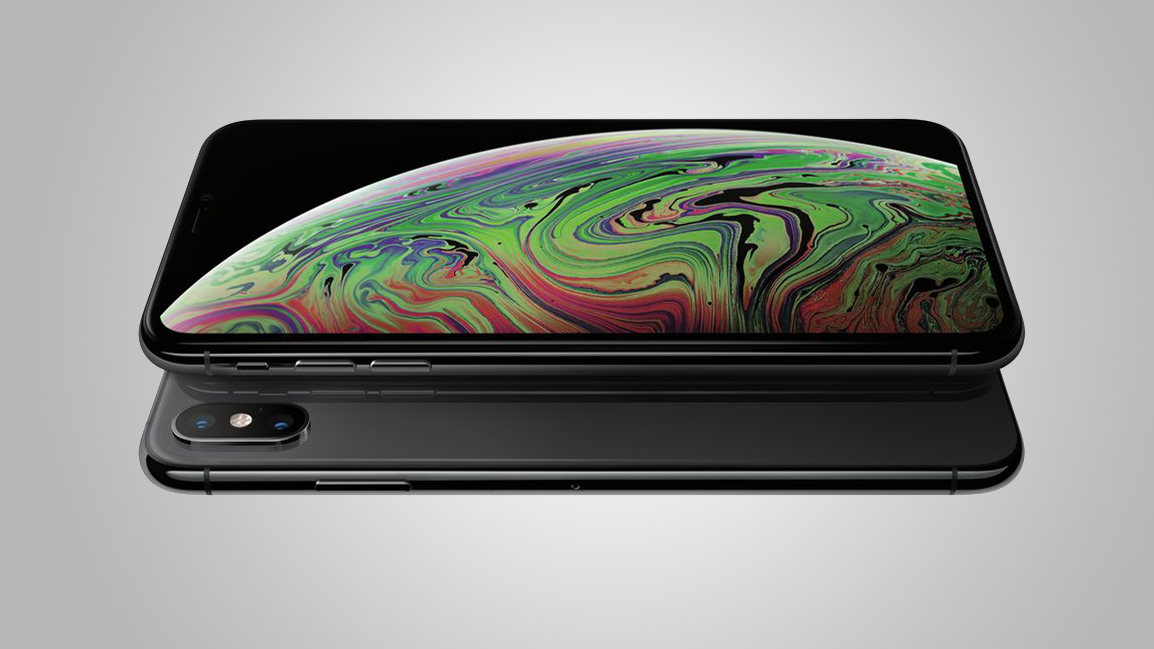
New iPhone 11 design
There is one particular design appearing in a whole host of new iPhone 11 leaks, showing a handset which looks very similar to the iPhone XS, but with a sizable triple-lens camera in the left rear corner.
That’s in line with where Apple currently places the rear cameras on its iPhones, but the new iPhone design makes for a different shape and an extra lens.
Our best look at the iPhone 11, iPhone 11 Max and iPhone 11R so far comes via a video which features convincing-looking dummy units that appear to confirm the various design rumors we’ve seen to date. Take a look for yourself below.
The units featured in the video again show a design which on the whole looks similar to the current iPhone range, albeit one major difference. The enlarged camera bump.
And what a bump it is, with the iPhone 11, iPhone 11 Max and iPhone 11R looking set to get a sizable increase in the rear camera array which will likely split opinion on how it looks.
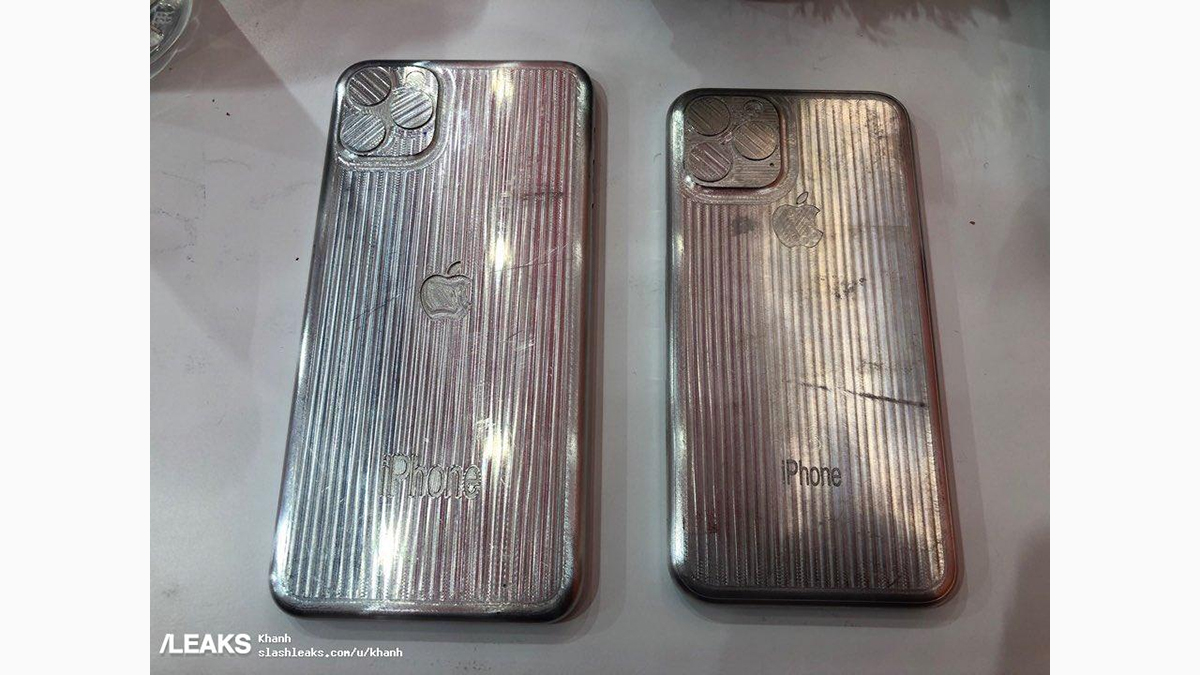
The leaked case dummies that you can see above gave us an early look at how the triple-lens rear camera might look on the iPhone 11 and iPhone 11 Max.
Respected Apple analyst Ming-Chi Kuo has weighed in to say that one of these lenses might be almost invisible, adding at the same time that the selfie camera will get a boost from 7MP to 12MP.
One of the sources of the earlier images added that three new iPhone models are in the works – successors to the iPhone XS, iPhone XS Max and iPhone XR. It looks very much like we’ll get three models again this year.
Speaking of the iPhone XR 2, reports suggest that will come in new lavender and green shades, as well as black, white, yellow and likely also red. That would mean that the iPhone XR’s coral and blue colors would be dropped.
You can see evidence of these new shades in the tweet below, which also includes case mouldings of the three phones, once again showing off that square camera block – a design that we’ve also seen in case renders.
The most comprehensive new iPhone 11 design leak, however, comes via CashKaro and OnLeaks, who have produced the video below featuring 3D renders of what they believe the new iPhone will look like.
Front-on it looks like the iPhone XS, but it may get the iPad’s smaller, circular mute slider on the side, while on the back it’s all change with a large bump housing three cameras.
Details leaked alongside the video claim the new iPhone 11 will have a 5.8-inch screen and measure 143.9 x 71.4 x 7.8mm, although it will apparently be 9mm thick at the camera bump.
A video showing the iPhone 11, 11 Max and 11R (or whatever it ends up being called) shows the handsets off in great detail, and it suggests that the three new phones will be exactly the same size as the XS, XS Max and XR devices.
We’ve also heard that the range could have a frosted glass-like back. This isn’t apparent in most images but has been rumored more than once.
Note that while most leaks point to the design above, there have been some dissenting voices.
The iPhone 11 renders below show three cameras in a central block on the back, a back which looks to be made of glass, as we’d expect, while the front retains the notch from the iPhone XS.
We’ve seen this design rumored a second time now, so it could be accurate, but it seems unlikely given how many times the square camera block has been rumored.
New iPhone 11 display
We’ve heard that the new iPhone 11 will have a 5.8-inch display, just like the iPhone XS, but with smaller bezels. The same source says to expect space grey, gold, silver and blue colors.
The size of the phone is a hotly contested one though – while some reports say it’ll stay the same size, others suggested the main iPhone 11 will be a bit bigger, and there are too many contradicting voices so we can’t say anything with any degree of certainty.
There’s seemingly some confusion over the iPhone 11 Max screen as well, with one report claiming it’ll have the same sized display as the iPhone XS Max (at 6.5 inches), while a separate claim reckons Apple will increase it to a sizable 6.7 inches.
One of the more recent leaks takes the form of CAD (computer-aided design) images of the three rumored phones, complete with screen sizes of apparently 5.8 inches for the iPhone 11, 6.5 for the iPhone 11 Max, and 6.1 for the iPhone 11R. Those sizes are our best guess for now, but still far from certain.
We’ve also heard that the iPhone 11R might have an LCD screen, while the other two are OLED.
New iPhone 11 camera
Most of the rumors we’ve heard point towards there being three cameras on the new iPhone 11.
We’ve seen schematics which seem to be for an upcoming new iPhone and match the camera layout mentioned in the ‘Design’ section.
Not only that, but part of a chassis supposedly intended for the iPhone 11 has also been caught on camera as you can see below, and it matches the schematic, showing cut-outs for three cameras in the top left corner.
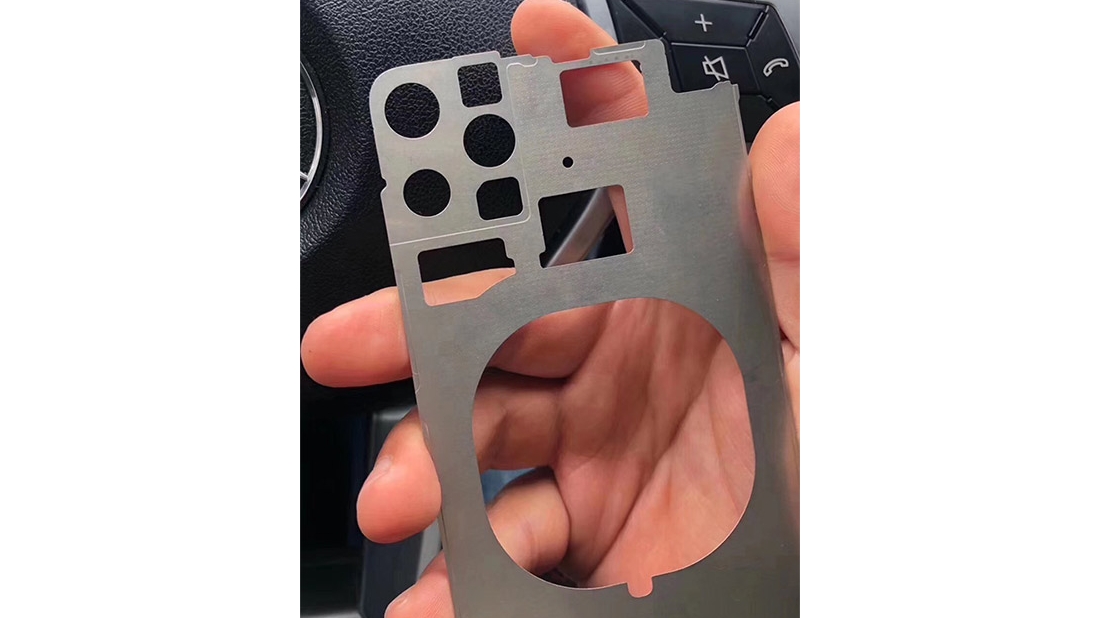
We’ve also seen camera protectors listed on a store, which also shows spaces for three lenses (along with a likely quad-LED flash) on the iPhone 11 Max.
However we’ve also heard from another source that only the highest-end iPhone 2019 (which we’ll call the iPhone 11 Max for now) will have three rear cameras, so it’s possible the ‘lite’ and standard phones won’t.
The same source says that the other two handsets will have dual-lens cameras.
In fact, we’re hearing this from multiple publications now. The iPhone 11 Max may be the one version with a triple-lens camera, while the smaller handsets in the iPhone range may get them “eventually,” reports Bloomberg – so possibly the 2019 models won’t.
We’ve also heard from another source that there will be a dual camera setup on the iPhone XR 2. Apparently, it will use the same dual cameras as the iPhone XS and XS Max, which would give the handset some solid shooting credentials.
However, elsewhere we’ve heard that the two main models will both be triple-lens, with a 12MP wide-angle lens joining the 12MP main and telephoto lenses found on the iPhone XS range.
This source adds that the third lens won’t have optical image stabilization, but the other two will, that the flash will be brighter than before, and that the camera bump will be smaller. They also say that the image signalling processor is being improved to allow for better photography.
According to another source, the iPhone 11’s front camera will be upped to 10MP (from 7MP on current models), and the rear camera will have 14MP and 10MP lenses, as well as a third, currently unknown one.
Interestingly, a laser-powered 3D camera was supposedly destined for the new iPhone 11 but said to have been delayed to the iPhone 12 (or whatever Apple calls its iPhone 2020 model). This iPhone roadmap suggests Apple is going all in on augmented reality (AR).
As well as a better front-facing camera though, the iPhone 11 could also pack the snapper and related sensors into a smaller notch, as a new tech created by one of Apple’s camera component suppliers allows for some of the sensors to be placed under the screen.
There’s no confirmation that Apple will use this tech, but we’d expect the company will be looking for ways to shrink the notch. That said, a source says the notch is staying the same this year.
New iPhone 11 battery and features
According to one source, Face ID will be improved for the new iPhone 11 range, allowing it to work from wider angles.
That USB-C port rumor a few sections above now has further evidence too as someone spotted the technology in a diagram within iOS 13. The image used suggests it will be on the next iPhone, and that may mean faster charging as well as some extra functionality too.
We’ve also heard multiple times that it won’t get USB-C though, so don’t expect a guaranteed change from Lightning.
One new feature it might get though is two-way wireless charging, allowing you to use the iPhone 11 as a charging mat for other devices. It’s a rumor we’ve heard more than once now so it definitely seems to be on the cards.
In order to make the most of that feature, the battery could grow, with reliable Apple analyst Ming-Chi Kuo suggesting that the iPhone 11 could get a battery that’s roughly 20-25% bigger than the 2,658mAh one in the iPhone XS.
The new iPhone 11 Max’s meanwhile could grow around 10-15% larger than the 3,174mAh one in the iPhone XS Max, and the iPhone XR successor could get one 5% larger than the 2,942mAh one in the iPhone XR. That would all apparently happen without making the phones any thicker, as the laminate on the screen would instead be thinner.
It’s a claim that there’s now more evidence for, as another source has since said that the iPhone 11R will have a 3,110mAh battery, making it around 5.7% larger than the battery in the iPhone XR.
Elsewhere, we’ve heard that the new iPhone 11 could have a 4,000mAh battery and a USB-C port.
The same source as the first reversible charging tip adds that we might see a frosted glass back, and ultra-wide band connectivity, which would allow for improved indoor positioning. That could help with navigating interiors or might benefit AR applications.
The new iPhones may even be easy to use in the rain. A report claims Apple is experimenting with a new tech that allows you to use the phone’s screen underwater.
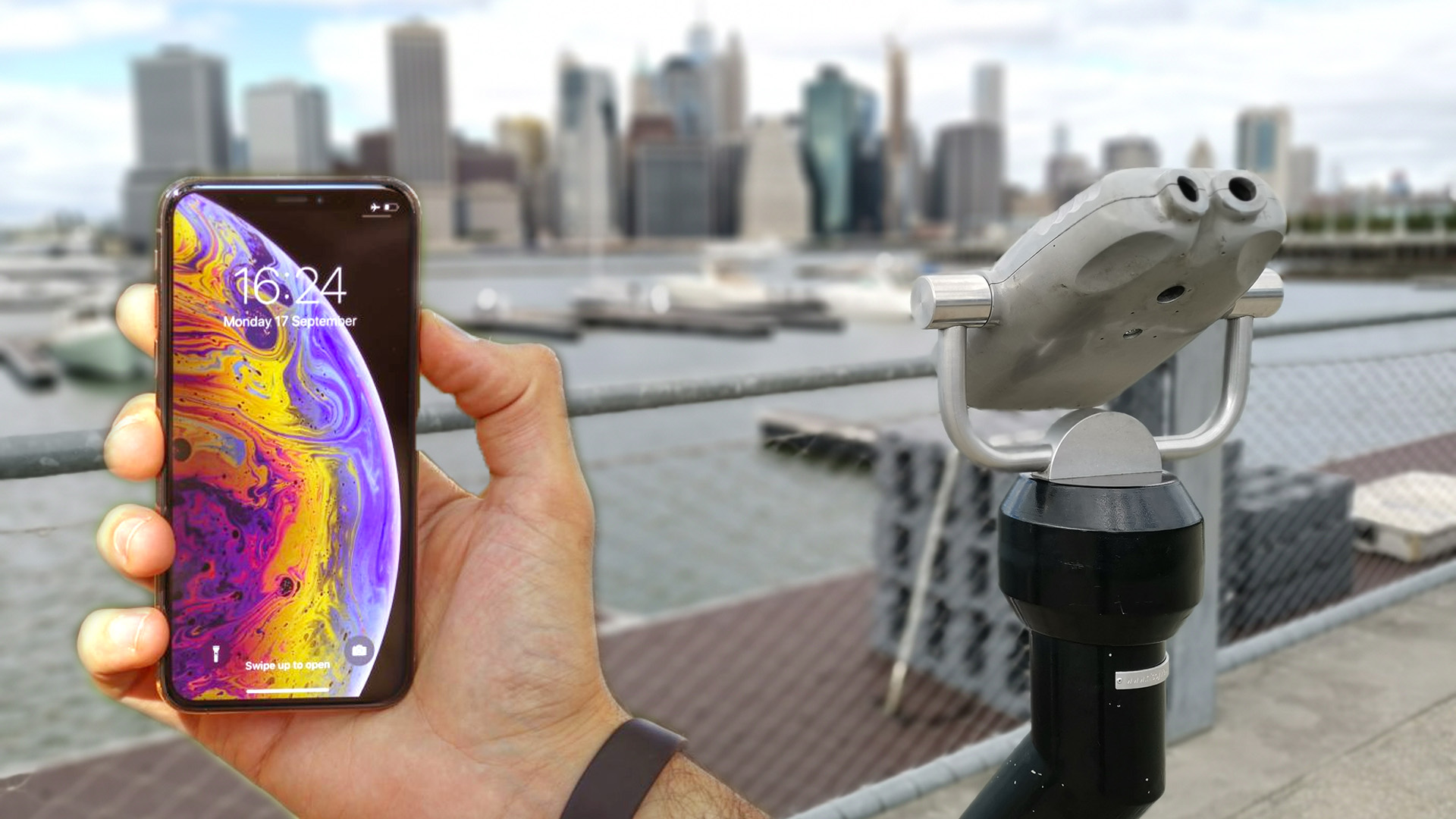
What’s more, a patent suggests the camera on a future iPhone would be able to tell when you’re underwater and alter settings accordingly, so that underwater photographs look better.
In other news, one report points to the inclusion of Sony’s next-gen 3D sensors in the new iPhone, which could, in turn, offer quicker face unlock, better Portrait mode depth-sensing and some potentially cool 3D modelling features and (AR) implementations. We recently watched a sample of Sony’s AR camera capabilities.
We also saw a patent that suggested the iPhone 11 could have sub-epidermal scanning to unlock, in which the front camera would scan the veins and blood vessels in your face using IR to make sure it’s actually you unlocking the phone.
Another patent meanwhile points to the return of Touch ID, but not as you know it. Rather, the patent talks about a system that would recognize your fingerprint when placed anywhere on the screen.
So it would be an in-screen scanner that works across the whole display, though we’re not convinced Apple will actually use this – lots of weird and wonderful things get patented with nothing coming of them.
For something else a little bit weird, a patent filed by Apple shows a system in which a sensor monitors chemicals in the air, in order to ‘smell’ odors – including body odor. This could be used in the iPhone 11 or Apple Watch 5, or perhaps a later device.
Meanwhile, another iPhone 11 leak suggests the new handsets could support input from the Apple Pencil that currently only works with iPads.
Apple usually introduces a new chipset with its new iPhone launches, and the A13 chip is being touted for the iPhone 11, with analysts claiming a manufacturer is already lined up to produce the A13 chip.
Inside the device, we’ve heard talk that the iPhone 11 will include support for the latest Wi-Fi 6 connection standards – through 5G tech might have to wait until the 2020 iPhones.
New iPhone 11 release date
- iPhone 11 launch date: September 10, 2019 (TechRadar predicts)
- iPhone 11 pre-order date: September 13, 2019 (TechRadar predicts)
- iPhone 11 release date: September 20, 2019 (TechRadar predicts)
The new iPhone 11 launch date may be a little later than previous years, as Europe’s biggest tech show, IFA 2019 in Berlin, is set to run from September 6-11 this year – which may see Apple defer its new iPhone launch to the following week.
It’s unlikely though, as the new iPhone launch has crossed over with the show a number of times (including 2014, 2015 and 2016), which means we’re still most likely to see an announcement week commencing September 9.
Apple historically hasn’t held its phone event on a Monday, with Tuesday or Wednesday the most commonly used days. With the Wednesday being September 11, a day of mourning in the US, Apple will most likely pick an iPhone 11 launch date of Tuesday, September 10, 2019.
If Apple does opt to delay the launch by a week – as suggested by experienced leaker @evleaks in a tweeted roadmap of key phone launches in 2019 – we could be looking at a potential iPhone 11 launch date of either September 17 or September 18.
Apple hasn’t launched an iPhone this late since 2011, when it announced the iPhone 4S on October 4, and we fully expect the Cupertino, California based firm to stick with a September arrival for the new iPhone in 2019.
As for the new iPhone 11 pre-order date, Apple tends to open them on the Friday following the launch, which would be September 13 by our calculations.
Finally, the new iPhone 11 release date – the day when you’ll actually be able to get your hands on the handset for the first time – could be just a week after the pre-orders open, so September 20 if our analysis is correct. These dates could quite easily shift though.
New iPhone 11 price
- iPhone 11 price likely to start around $999 (£999, AU$1,579)
- There could be a new price strategy
Even without knowing the official iPhone 11 price, we know it will cost a lot. After all, Apple priced the iPhone XS and iPhone X starting at $999 (£999, AU$1,579). We could see identical prices for the iPhone 11.
With news that Apple isn’t selling as many iPhones as it previously forecast, there’s a chance the iPhone 11 will be priced more affordably – although we reckon a price freeze, rather than a reduction, is a more likely move by Apple.
It could mean good news for the successor to the well-received iPhone XR, with the main complaint about the first handset being it was still a little steep price-wise. If Apple can reduce the price on the iPhone 11R, it may help soften a lofty new iPhone 11 price tag.
New iPhone, iPhone 11 or iPhone XI?
What will Apple call the new iPhone 11? It’s a puzzling conundrum and there are a variety of different options for Apple to potentially pick from.
It seems Apple has backed itself into somewhat of a naming corner with the recent XS, XS Max and XR monikers – so where does it go from here?
Will it stick to roman numerals, revert back to traditional digits, or ditch numbers altogether? At this stage, with sparse new iPhone leaks around, nothing is off the table.
At this moment in time, we’re seeing most of you searching for ‘new iPhone’, and that’s a strong contender. Apple has already ditched numbered increments for Mac, MacBooks, TV and iPads, so ‘new iPhone’ would be a logical next step.
However, the numbers are a great way to easily distinguish new devices from old, so both iPhone 11 and iPhone XI are very much in the running. Apple never did give us an iPhone 9 though – with the iPhone 8 the final digit before the ‘X’ revolution – so going back to ’11’ may look a little odd.
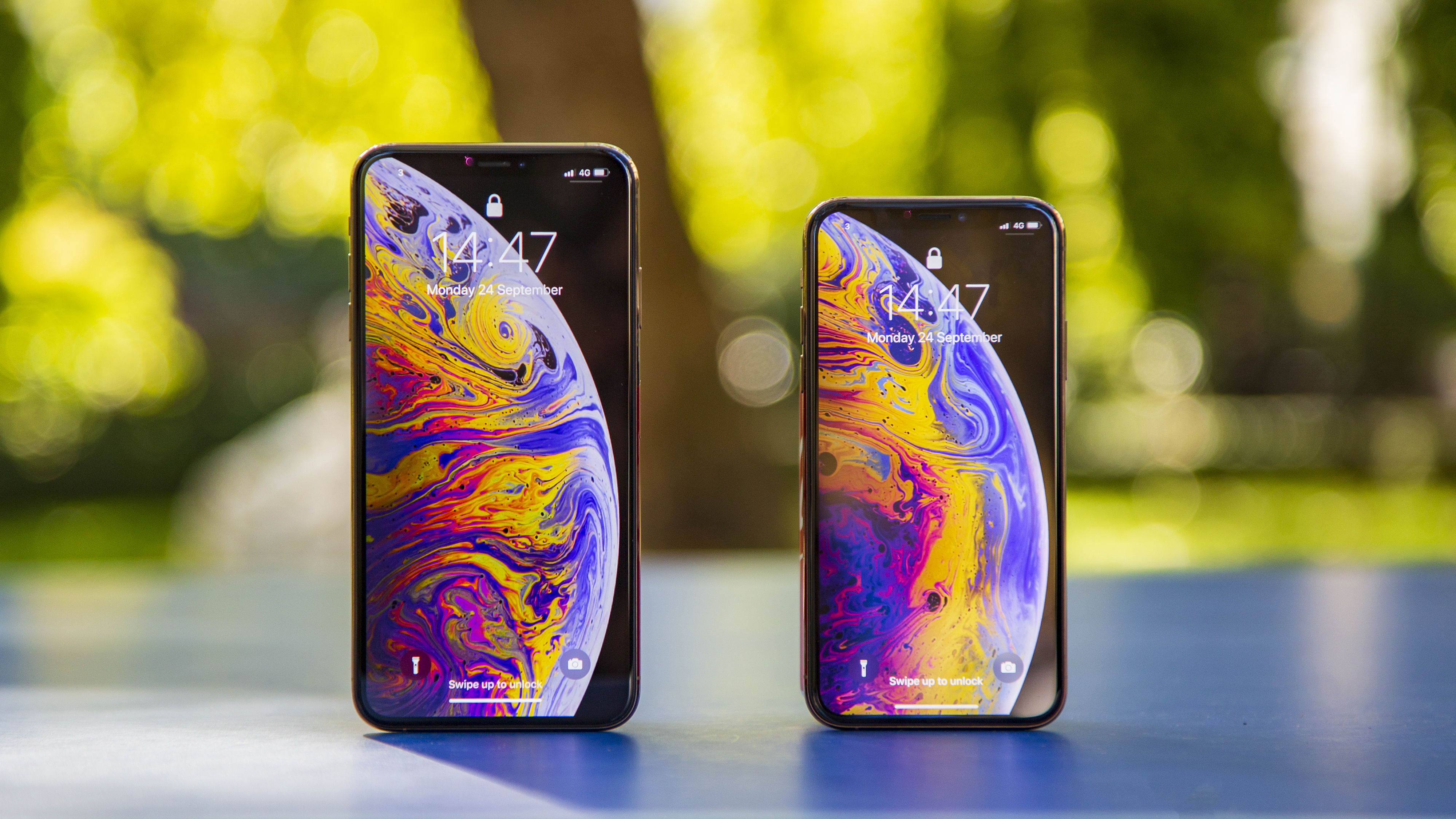
New iPhone 11: what we want to see
The iPhone XS and iPhone XS Max are great smartphones, but there’s always room for improvement and human nature desires more every time – which means Apple needs to shake a few things up.
1. No notch (or, at least, a smaller one)
Love it or hate it, the notch has taken the smartphone world by storm, with a sharp influx in the design aesthetic after the arrival of the iPhone X – however, it seems many of the competition have already surpassed Apple’s implementation.
The Apple notch is distinctive thanks to its size, but that’s also its Achilles heel. It takes up a large amount of space along the top of the screen while we seen Android makers bring us dew-drop screens which are only as big a single front-facing camera.
What’s preventing the notch from simply being ditched is all the tech Apple has crammed into it, and to remove it completely could mean a loss of some features – such as Face ID.
Apple can probably relocate the microphone, proximity sensor and speaker, which in turn may see a reduction in the size of the notch – which would be a step in the right direction.
But, no notch would be the killer look – with a clean, elegant design that will surely turn heads.
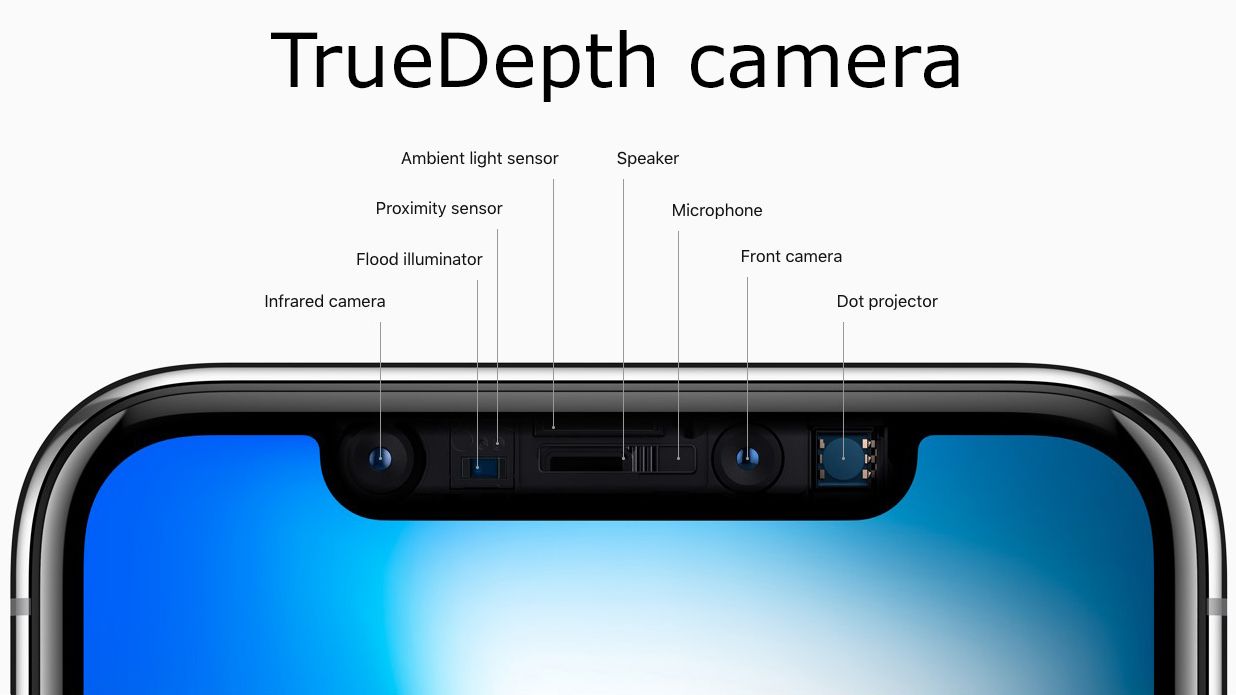
2. A new design
The current design of the XS and XS Max is fantastic – solid, premium and sleek, it’s one of the most desirable looks on the market, so is it cheeky of us to ask for something new? We don’t think so.
Apple’s used the same design for the past two generations, and to avoid the new iPhone 11 being branded another incremental update, a fresh new look would help.
If Apple does ditch the notch as we’ve so very kindly asked for above, that would be the first step towards a new design, but we’d like to see it go further,
It’s already removed the headphone jack and home button, so our focus is now on the alert slider, volume buttons and power key.
We’ve seen HTC and Google implement squeezable sides on their phones, and if Apple can hone this technology to make it even more user friending it could be the end of any physical button or switch on the handset.
3. Better battery life
We say this every year, but the fact remains that iPhones still aren’t the strongest performers when it comes to battery life.
The iPhone XS provided an improvement in the battery over the iPhone X, but as we noted in our review, it’s still “a long way from the best on the market.”
It’s time Apple really got to grips with battery life, giving the new iPhone 11 a power pack that will see it comfortably through one day and into the next without a panic about finding a charger overnight.
Battery technology isn’t going to give us the multiple days of battery life we saw from feature phones back in the early 2000s, but an iPhone that could stretch to two days from a single charge would really get people talking.
4. eSIM only
The latest round of iPhones (the XS and co.) offer dual SIM capabilities, but they can only hold one physical SIM. That’s because the other one is an eSIM, which is built into the handset and can be assigned to a network upon activation.
Having to slide a SIM card into a new phone feels rather old fashioned in 2019, so we’d like to see the physical card ditched in favor of a dual eSIM setup in the new iPhone 11.
We’d also want an easy to use the setting that allows us to easily jump onto a network of our choosing at a tariff of our choice and, more importantly, be able to easily switch to a different network when our current deal expires.
Plus, it would also mean the removal of the SIM tray, allowing for a sleeker design and potentially freeing up some precious additional space inside the handset for new features (or more battery!).
This is only partly on Apple however, as carriers around the world would have to fully support eSIM technology and at the moment only a handful do so.
However, with the introduction of 5G in 2019 and the presence of eSIM already inside one generation of iPhone, this ask isn’t totally out of the question.



